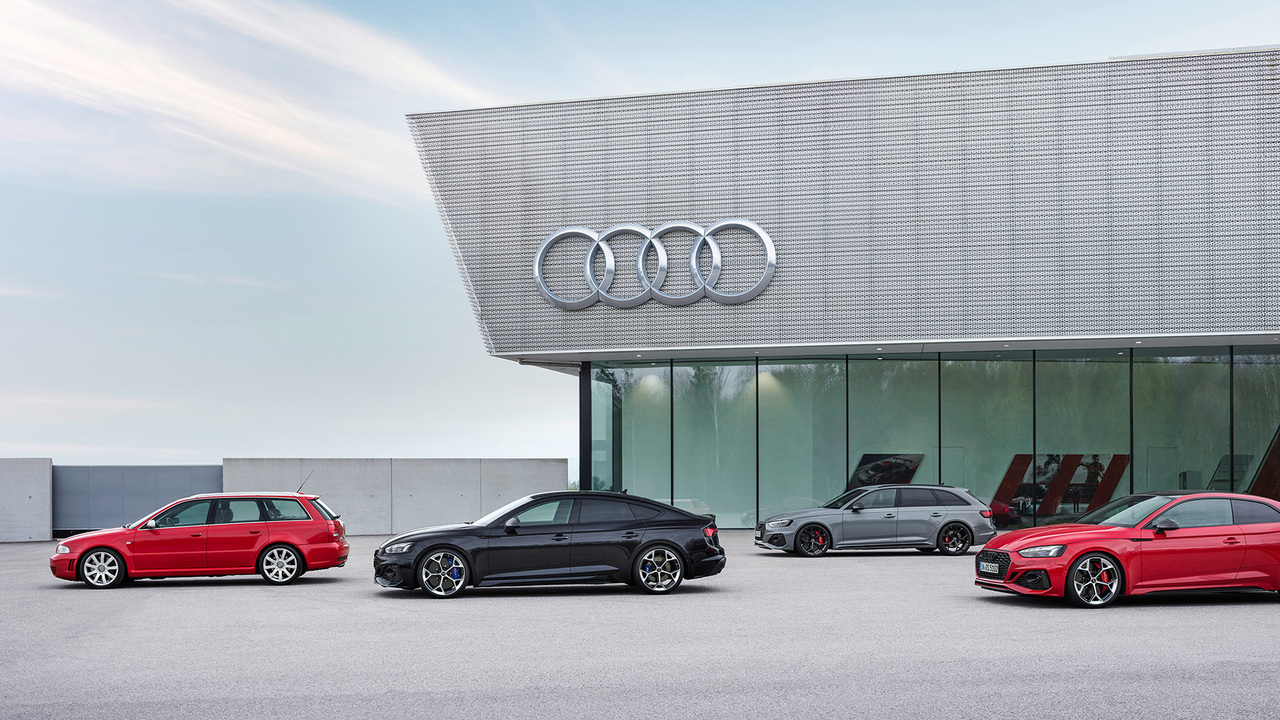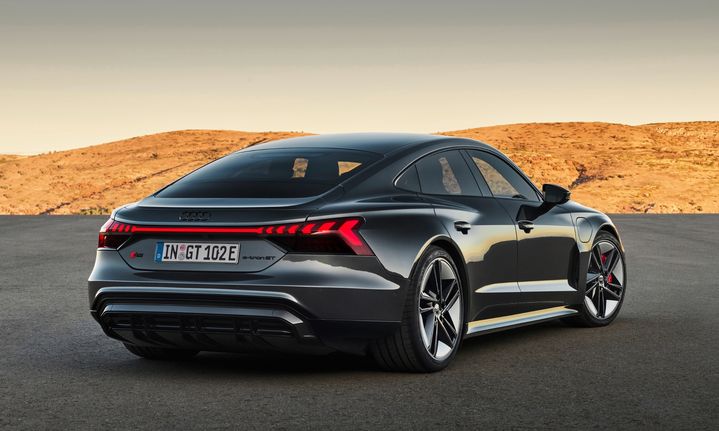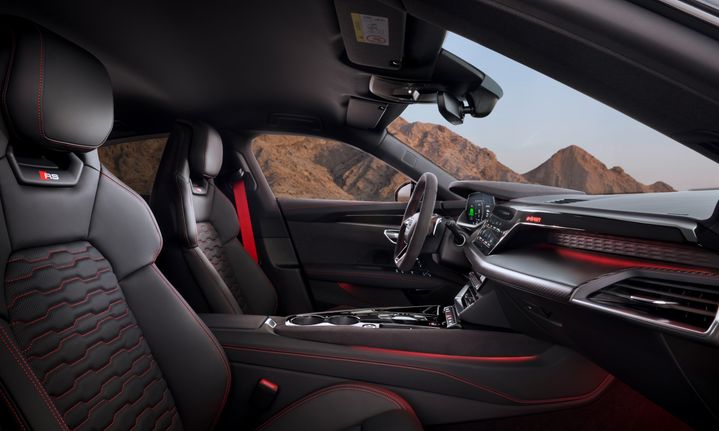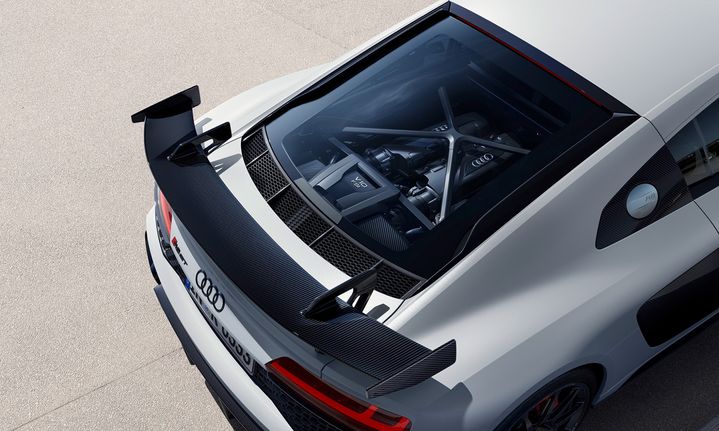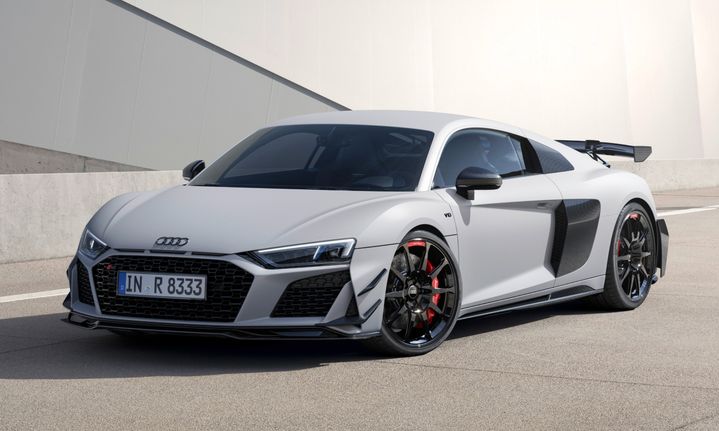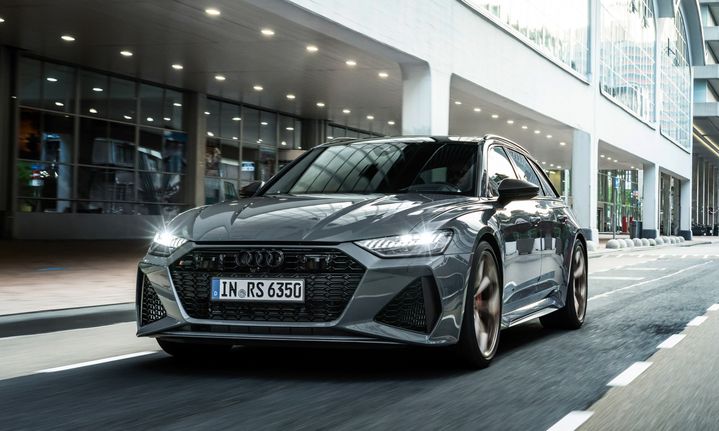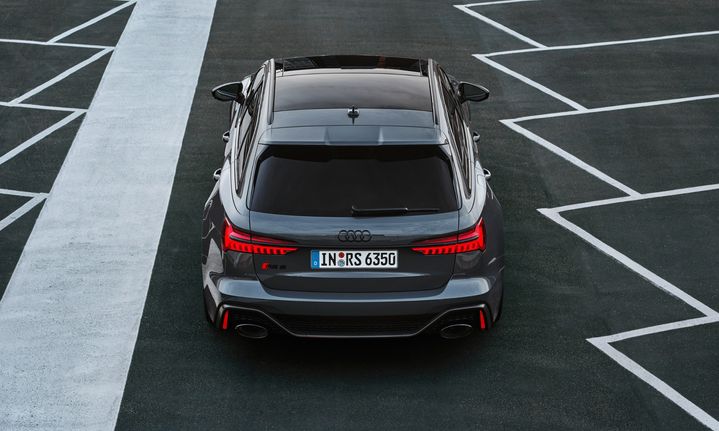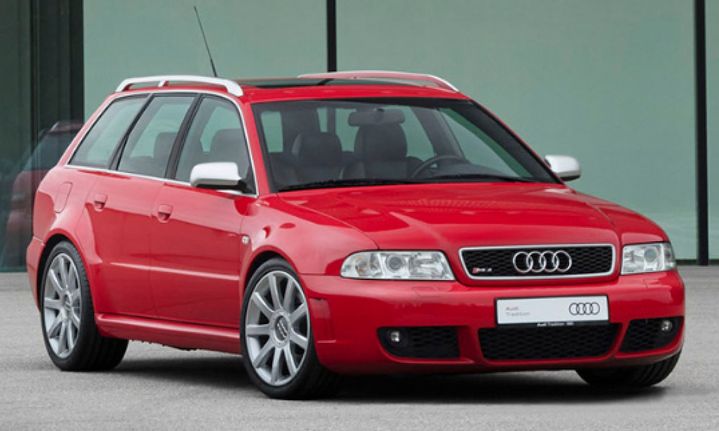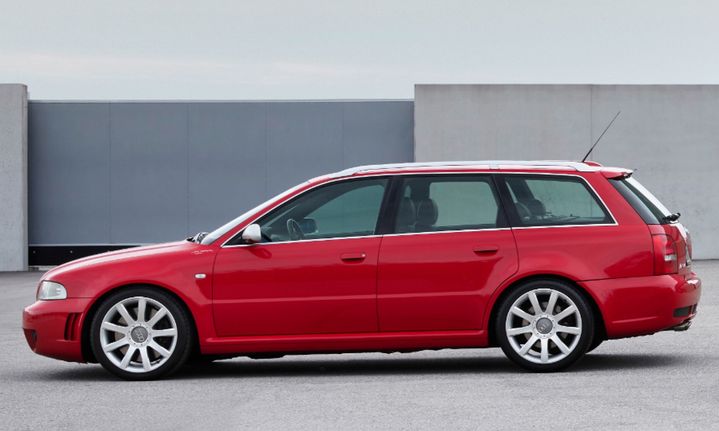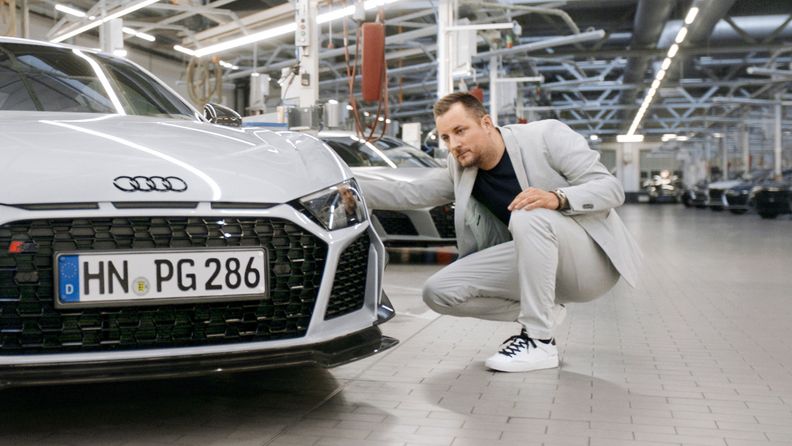Progress shaped by the rhombus
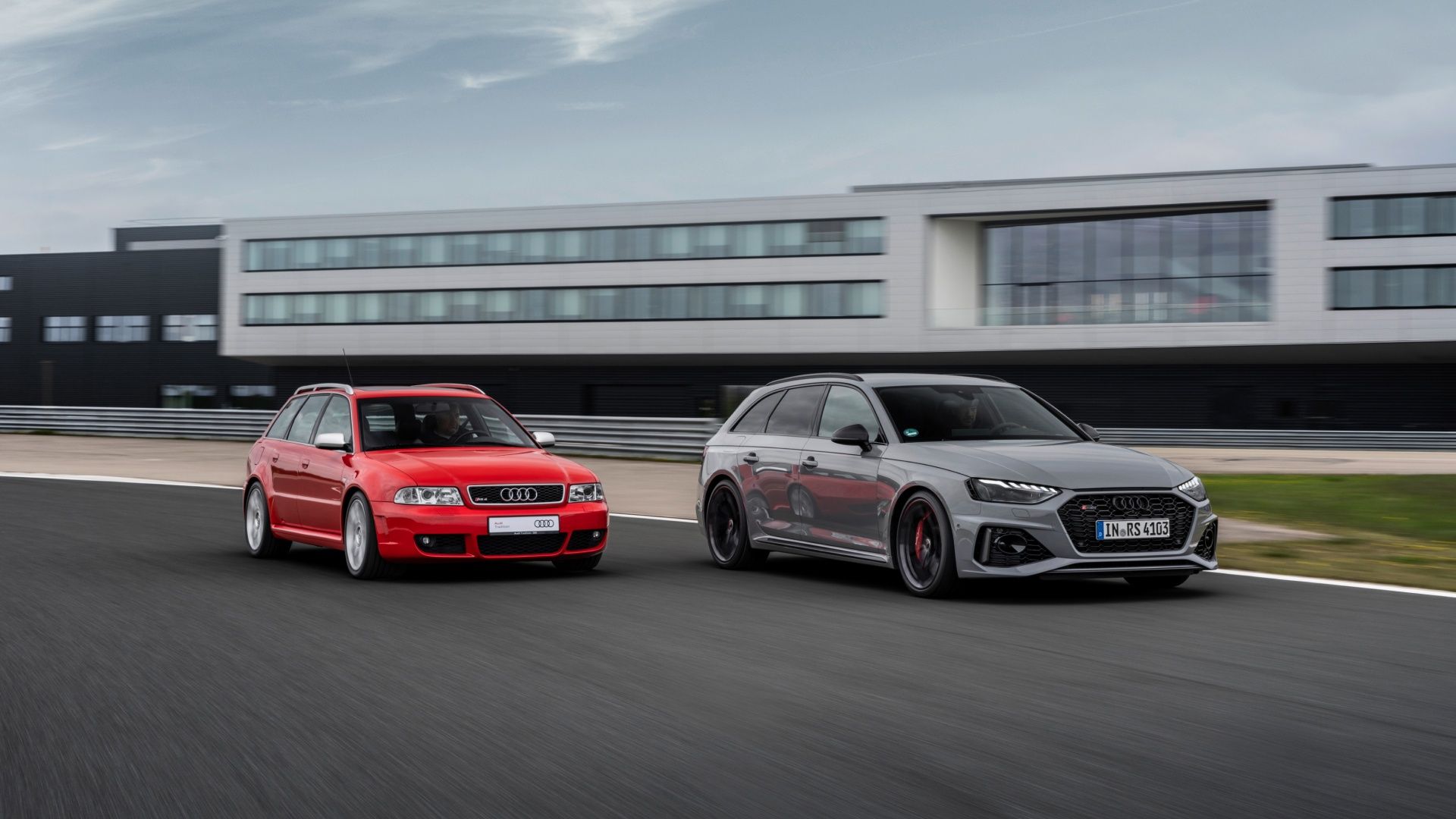
Professional driver, closed-off track. Do not attempt.
Professional driver, closed-off track. Do not attempt.
Experience you can feel
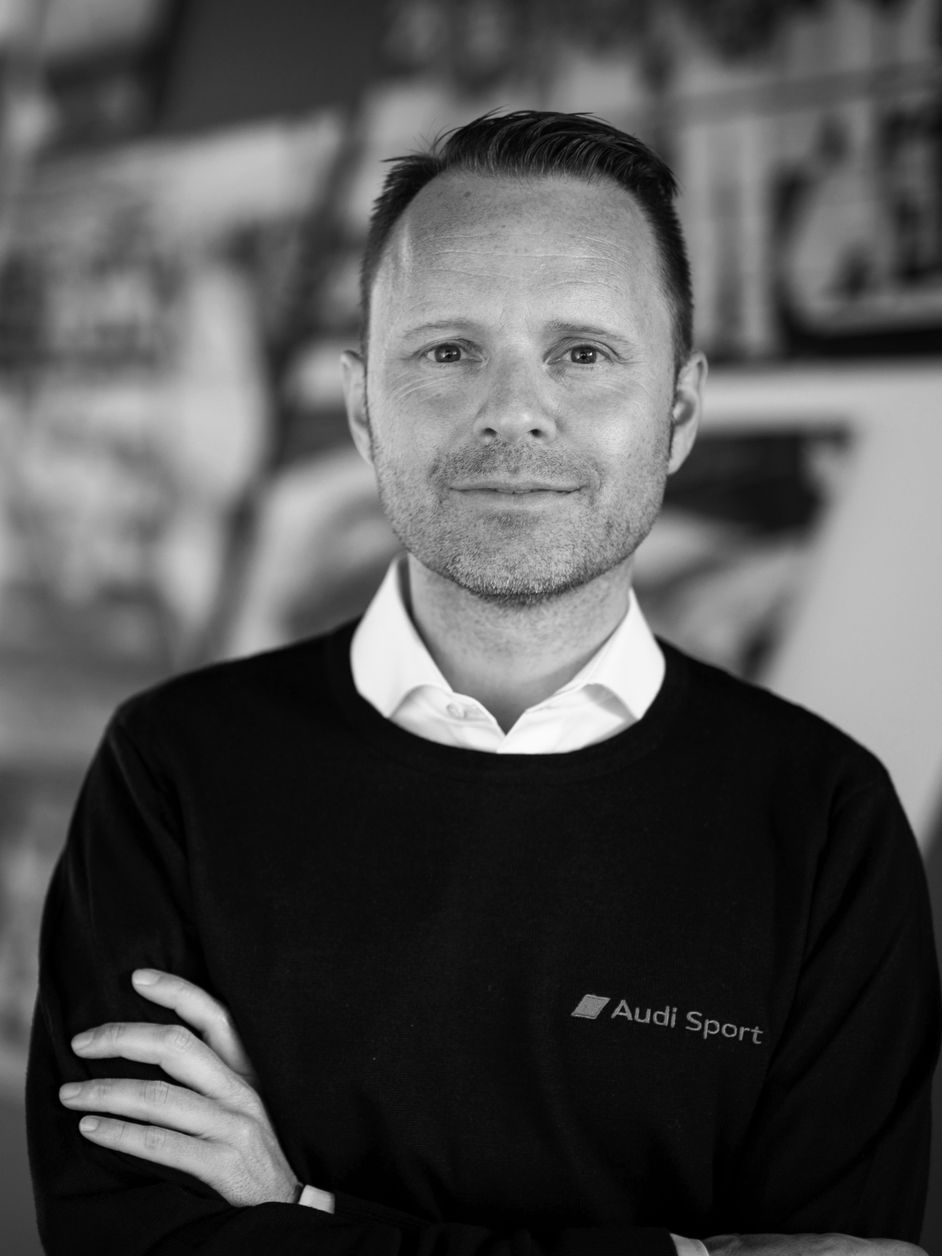
Experience you can feel
“It’s part of our DNA to develop and test new technologies for production vehicles in motorsport for the first time. At the Dakar Rally, the Audi RS Q e-tron¹ has proven for two years now that an electrified drive concept² can perform under the toughest conditions. In our production portfolio, the Audi RS e-tron GT – as the first all-electric RS model – stands for our fascinating, emotional and consistent progress.”
Audi RS e-tron GT: Power consumption (combined) in kWh/100 km: 21.1–18.4CO₂ emissions (combined) in g/km: 0CO₂ emission class: A
¹This vehicle is the Dakar Rally vehicle that is not available as a production model.
²The Audi RS Q e-tron combines an electric drivetrain with an energy converter system based on the TFSI engine and a generator.
Audi RS e-tron GT: Power consumption (combined) in kWh/100 km: 21.1–18.4CO₂ emissions (combined) in g/km: 0CO₂ emission class: A
¹This vehicle is the Dakar Rally vehicle that is not available as a production model.
²The Audi RS Q e-tron combines an electric drivetrain with an energy converter system based on the TFSI engine and a generator.

Performance you can feel
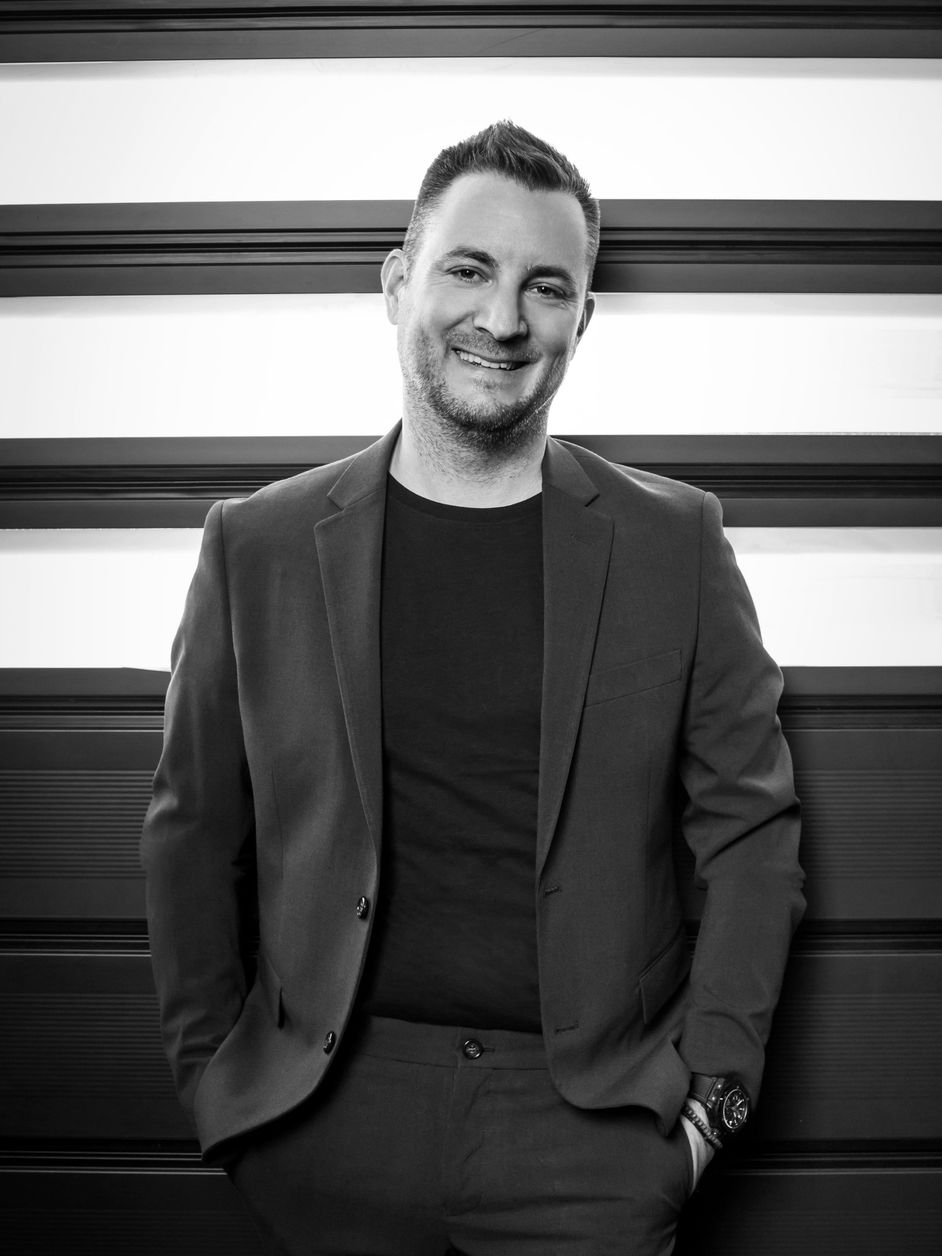
Performance you can feel
“Production of the Audi R8 GT takes place at the Böllinger Höfe together with the Audi e-tron GT. It’s a unique combination of craftsmanship and smart factory. As a young engineer, I had the chance to help develop the engine of the first Audi R8. When I started the engine on the test bench for the first time, I got goose bumps. The enhancements in the second-generation Audi R8 GT with its 5.2-litre naturally aspirated V10 engine developing 456 kW (620 hp) (fuel consumption combined: 15.0– 14.9 l/100 km; CO₂ emissions combined: 341-339 g/km) and the new Torque Rear driving mode, which enables controlled yet precise oversteer: that’s progress you can feel!”
Audi RS e-tron GT: Power consumption (combined) in kWh/100 km: 21.1–18.4CO₂ emissions (combined) in g/km: 0CO₂ emission class: A
Audi R8 GT: Fuel consumption (combined) in l/100 km: 15–14.9CO₂ emissions (combined) in g/km: 341–339CO₂ emission class: G
Audi RS e-tron GT: Power consumption (combined) in kWh/100 km: 21.1–18.4CO₂ emissions (combined) in g/km: 0CO₂ emission class: A
Audi R8 GT: Fuel consumption (combined) in l/100 km: 15–14.9CO₂ emissions (combined) in g/km: 341–339CO₂ emission class: G

40 years at the pulse of time
When Audi Sport GmbH was founded in 1983 as quattro GmbH, it was not yet foreseeable that it would become a manufacturer of top-quality high-performance vehicles with an extremely successful motorsport programme over the following four decades. In the 1980s, the company began selling accessories and sports equipment, followed by exclusive custom equipment in the 1990s. With the presentation of the Audi S6 plus, the company officially became a vehicle manufacturer in 1996. But the real foundation stone for what is still to be found in the current R and RS series models was laid in 1999 with the first Audi RS 4 Avant. Today, the vehicle portfolio is larger than ever, with 16 models ranging from the compact Audi RS 3 Sportback to the Audi R8 Coupé supercar and the all-electric top model Audi RS e-tron GT. In 2016, quattro GmbH was renamed as Audi Sport GmbH – the name Audi Sport is based on the long and successful tradition in motorsport, with more than 400 titles won. But the focus is still on electrification: The innovative Audi RS Q e-tron¹ prototype was built in 2021 for the first participation in the legendary Dakar Rally and preparations are currently underway for the entry into the FIA Formula 1 World Championship planned for 2026. The new regulations will then focus on greater electrification. Taking new, unusual paths and continuously enhancing its vehicles – this attitude will continue to characterise Audi Sport GmbH. The goal is clear: To boldly, sustainably and progressively shape the future of mobility in the high-performance segment.
Audi RS 3 Sportback: Fuel consumption (combined) in l/100 km: 9.5–9.0CO₂ emissions (combined) in g/km: 216–205CO₂ emission class: G
Audi RS 6 Avant: Fuel consumption (combined) in l/100 km: 13.0–12.0CO₂ emissions (combined) in g/km: 289–276CO₂ emission class: G
Audi RS e-tron GT: Power consumption (combined) in kWh/100 km: 21.1–18.4CO₂ emissions (combined) in g/km: 0CO₂ emission class: A
Audi R8 Coupé V10 performance quattro: Fuel consumption (combined) in l/100 km: 13.1–12.9CO₂ emissions (combined) in g/km: 297–293CO₂ emission class: G
¹This vehicle is the Dakar Rally vehicle that is not available as a production model.
Audi RS 3 Sportback: Fuel consumption (combined) in l/100 km: 9.5–9.0CO₂ emissions (combined) in g/km: 216–205CO₂ emission class: G
Audi RS 6 Avant: Fuel consumption (combined) in l/100 km: 13.0–12.0CO₂ emissions (combined) in g/km: 289–276CO₂ emission class: G
Audi RS e-tron GT: Power consumption (combined) in kWh/100 km: 21.1–18.4CO₂ emissions (combined) in g/km: 0CO₂ emission class: A
Audi R8 Coupé V10 performance quattro: Fuel consumption (combined) in l/100 km: 13.1–12.9CO₂ emissions (combined) in g/km: 297–293CO₂ emission class: G
¹This vehicle is the Dakar Rally vehicle that is not available as a production model.
Design you can feel
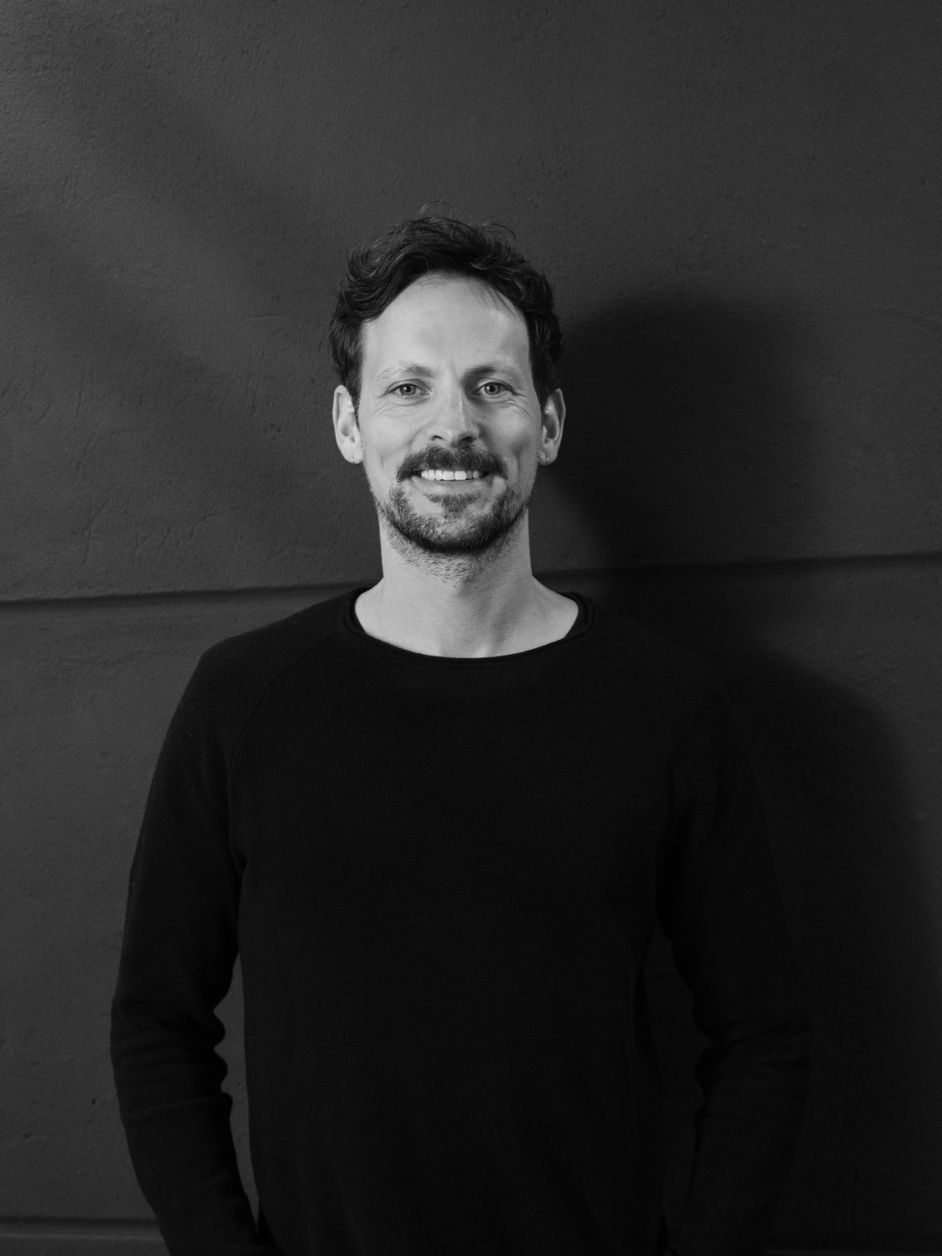
Design you can feel
“Exterior design is extremely important to our RS customers in particular. The wide body is a fundamental part of the Audi Sport DNA. It gives an RS model its overall appearance. The current Audi RS 6 Avant performance is up to 80 millimetres wider than the normal Audi A6 Avant, but it is not just a matter of extending the wheel arches. The car is practically completely redesigned around the wide body. The Audi RS 6 Avant only shares the roof, front doors and tailgate with the Audi A6 series. The rest is exclusively designed. So you can feel the emotion and performance of our RS models long before you get in.”
Audi RS 6 Avant: Fuel consumption (combined) in l/100 km: 13.0–12.0CO₂ emissions (combined) in g/km: 289–276CO₂ emission class: G
Audi RS 6 Avant: Fuel consumption (combined) in l/100 km: 13.0–12.0CO₂ emissions (combined) in g/km: 289–276CO₂ emission class: G

Heritage you can feel
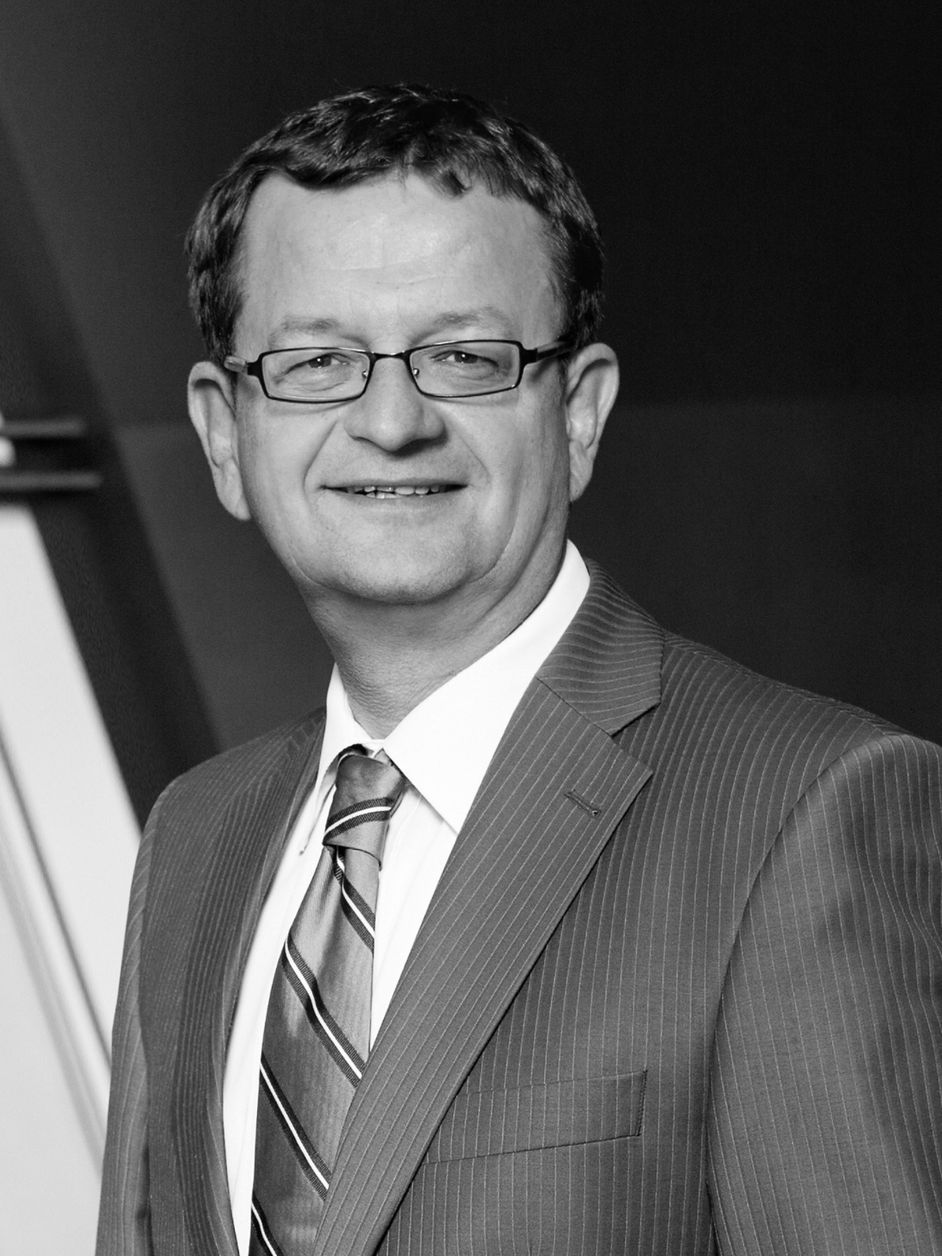
Heritage you can feel
“The first Audi RS 4 Avant, which we presented in 1999, was in the strict sense the first genuine RS model from quattro GmbH. Not only did it lay the foundation for everything that still characterises our vehicles today. With the 280 kW (380 hp) V6 twin turbo unit, we also created something completely new at the time – back then, there was nothing in this vehicle segment that could match the performance of our Audi RS 4 Avant. This gave rise to the guiding principle ‘generate demand’, and our aspiration to create surprise moments with our vehicles time and time again still clearly resonates as part of our DNA today.”

